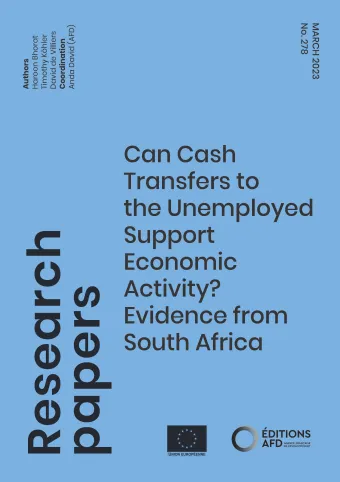Share the page
Can Cash Transfers to the Unemployed Support Economic Activity? Evidence from South Africa
Published on

Persistently high unemployment has plagued South Africa over the last few decades, while concurrently there has been a dearth of state-provided income support to the working-age economically active population. In response to the pandemic the government introduced the COVID-19 Social Relief of Distress grant – the country’s first unconditional cash transfer targeted at the unemployed. At the time of writing, however, no causal evidence of the grant’s effects exist. We adopt a doubly robust, semi-parametric Difference-in-Differences approach on representative panel labour force data to estimate the contemporaneous and cumulative causal effects of the grant on labour market outcomes. We find robust evidence that the grant increased average employment probabilities by approximately 3 percentage points, an effect largely driven by wage and formal sector employment. Employment effects vary by duration of receipt, with larger effects estimated for the short-term which reduce to zero with additional periods of receipt. We additionally find marginally significant effects on the probability of trying to start a business, but no evidence of any effects on job search. These findings suggest that the grant has performed a multi-purpose role in providing income relief while also enabling a path towards more favourable labour market outcomes.
Useful Information
-
Authors
-
Haroon BHORAT, Timothy KÖHLER, David de VILLIERS
-
Edition
-
278
-
Number of pages
-
50
-
ISSN
-
2492 - 2846
-
Collection
-
Research Papers
